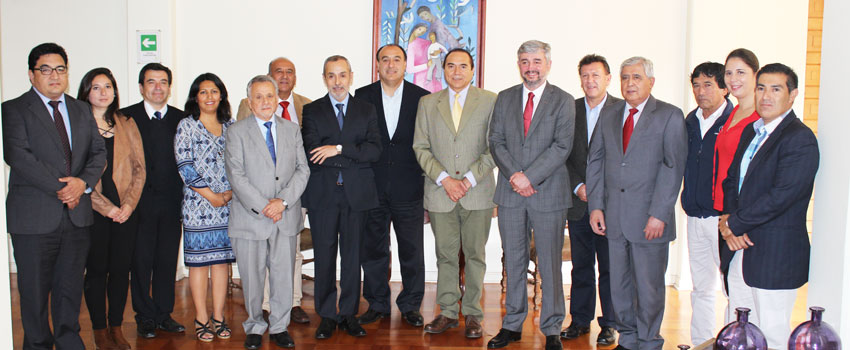
The initiative aims to motivate institutions to be leaders in occupational health and safety and actively involve their workers in risk management.
In a ceremony held at the Headquarters, the Rector of the University of La Serena, Dr. Nibaldo Avilés, signed the declaration of commitment of the ULS to achieve the goal of “Zero Fatal Accidents” in the institution, within the framework of the campaign promoted by the Chilean Chamber of Construction and Mutual Security.
The initiative aims to motivate CChC members to be leaders in occupational health and safety and to actively involve their workers in risk management.
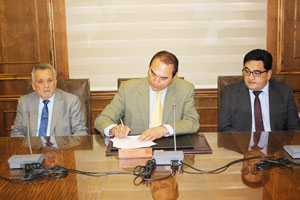 In this way, the house of higher education committed to continue building a “Safety Culture”, keeping Risk Prevention integrated into the usual operations carried out by the institution, in all its work centers, and also to materialize a series of activities.
In this way, the house of higher education committed to continue building a “Safety Culture”, keeping Risk Prevention integrated into the usual operations carried out by the institution, in all its work centers, and also to materialize a series of activities.
The Rector of the ULS, Dr. Nibaldo Avilés, valued the commitment assumed by the institution and expressed that “for us it is a great pride to be a University that gives clear signals that it wants to be at the forefront in terms of safety and security regulations. prevention".
For his part, the regional president of the CChC La Serena, Sergio Quilodrán, highlighted the fact that the University of La Serena signs this commitment “with one of the essential values of society: life. With the ULS, there are 137 member companies of the Chilean Chamber of Construction La Serena that have signed up to this sustainability initiative, and with which we hope to continue along the path of commitment to our collaborators.”
While the Director of Human Resources of the university institution, Dr. Héctor Bugueño, pointed out that the signing of this commitment points to the quality of life of people. “This activity is a clear example of institutional commitment in the sense that people are the center,” he said.
The ing. in Risk Prevention, Verónica Antiñirre, from the Dept. of Risk Prevention of the ULS, commented that in the history of the University there is no fatal accident to regret and that with the signing of this document the institution "commits to its workers, its officials, to improve its safety standards. security, thus being at the level of the great institutions of the region and the country.”
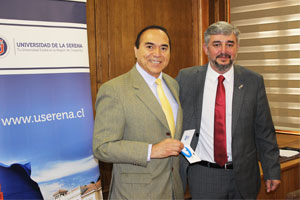 “Report your incidents” campaign and training
“Report your incidents” campaign and training
The professional explained that within the framework of the signed commitment, a campaign called “Report your incidents” will be implemented, which will be carried out with the support of the Joint Committee and the Mutual Security Agency, and which aims to ensure that officials report risk situations in a timely manner. that may cause accidents (they can be reported in boxes located in various units). Training is also considered for officials of the Central Casino, Department of Works and Maintenance, Information Technology and Computing Center, and Central Library.

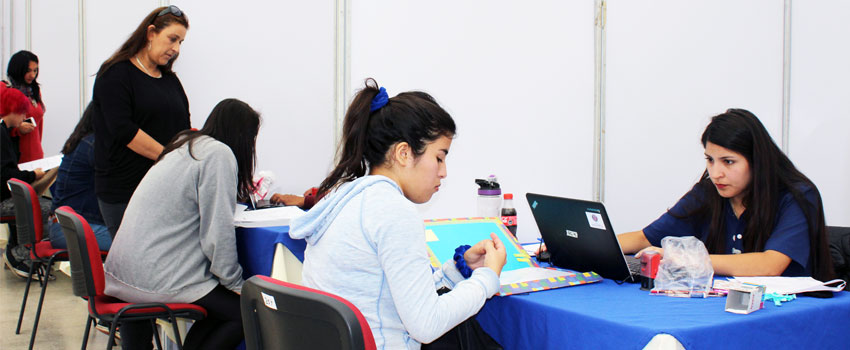
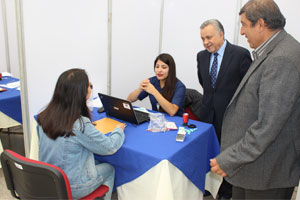 The high attendance of students was valued by the Academic Vice-Rector, Dr. Jorge Catalán, who stated that it is a “clear demonstration of the interest of students from the region and other regions to apply to our University and enroll in it. There is also evidence in the increase in scores compared to the previous year for the different races. The process is developing very normally, with a lot of enthusiasm and order, and with very good quality attention for the students who enter.”
The high attendance of students was valued by the Academic Vice-Rector, Dr. Jorge Catalán, who stated that it is a “clear demonstration of the interest of students from the region and other regions to apply to our University and enroll in it. There is also evidence in the increase in scores compared to the previous year for the different races. The process is developing very normally, with a lot of enthusiasm and order, and with very good quality attention for the students who enter.”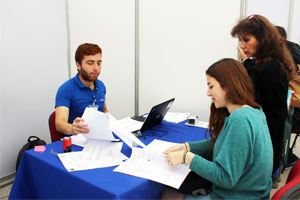 Next stages of the process
Next stages of the process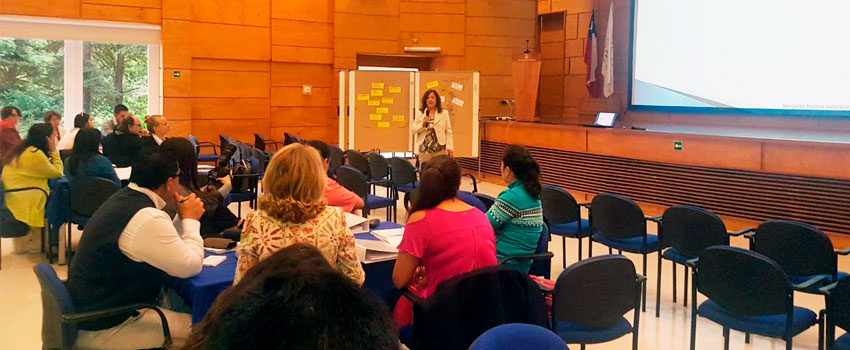
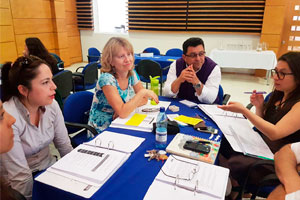 This inter-university technical advice and support was specifically carried out with the presence of the General Director of Engagement with the Environment, Margarita Pastene (UPLA), who developed - within the framework of this course - an activity on methodological and instrumental approaches to design initiatives, projects and programs with the greatest impact in this area.
This inter-university technical advice and support was specifically carried out with the presence of the General Director of Engagement with the Environment, Margarita Pastene (UPLA), who developed - within the framework of this course - an activity on methodological and instrumental approaches to design initiatives, projects and programs with the greatest impact in this area.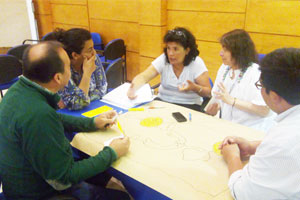 “It is the beginning of a series of workshops and will be a contribution to everything we have to advance, it is the first step for a group of teachers to meet here and be able to understand key concepts such as bidirectionality, extension, connection with the environment, among others. aspects that we have to know how to clearly identify. Professors are also interested in being able to learn and work in this area,” said Óscar Díaz, an academic at the University of Los Lagos.
“It is the beginning of a series of workshops and will be a contribution to everything we have to advance, it is the first step for a group of teachers to meet here and be able to understand key concepts such as bidirectionality, extension, connection with the environment, among others. aspects that we have to know how to clearly identify. Professors are also interested in being able to learn and work in this area,” said Óscar Díaz, an academic at the University of Los Lagos.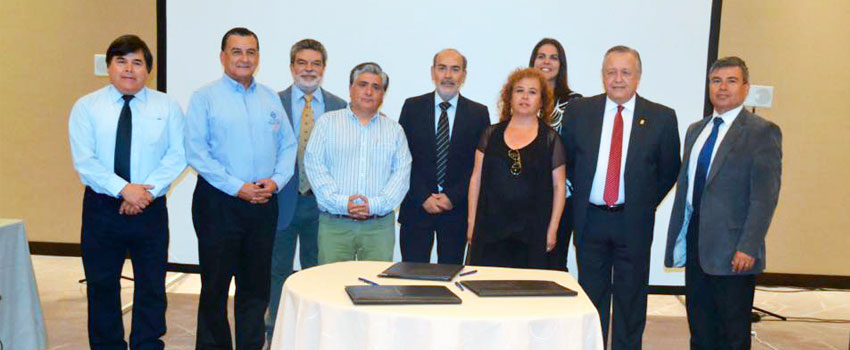
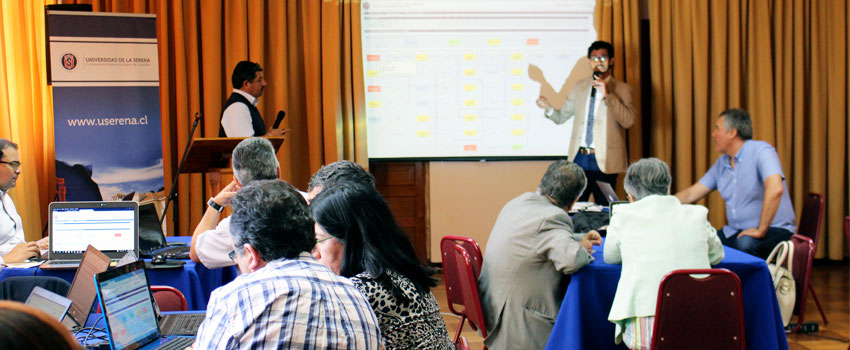
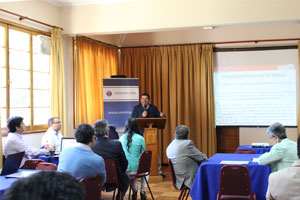 The digital tool was designed by the School Directors who are members of the Curricular Management team of the ULS 1402 Project, in conjunction with CICULS. The above, to respond to the current requirements for a much more detailed management of the implementation process of the curricular renewal.
The digital tool was designed by the School Directors who are members of the Curricular Management team of the ULS 1402 Project, in conjunction with CICULS. The above, to respond to the current requirements for a much more detailed management of the implementation process of the curricular renewal. 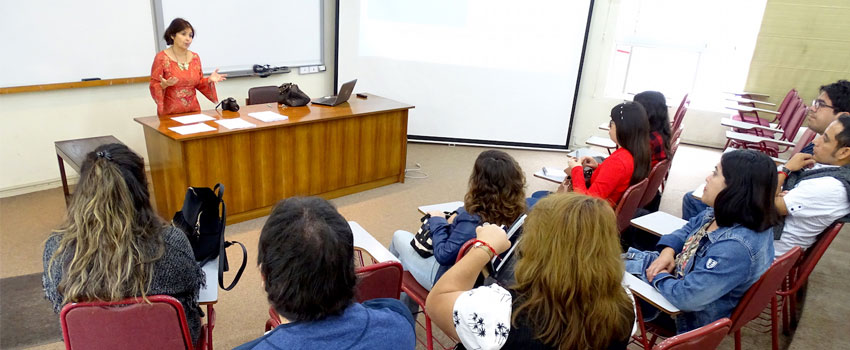
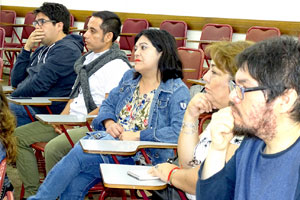 The proposal provides evidence of a development process by the teams of experts and includes a broad consultation, so the members in charge of developing the Chemistry standards decided to hold a focus group that would integrate graduates from the regional institutions that They participate in the preparation, in order to collect information that contributes to the improvement of standards.
The proposal provides evidence of a development process by the teams of experts and includes a broad consultation, so the members in charge of developing the Chemistry standards decided to hold a focus group that would integrate graduates from the regional institutions that They participate in the preparation, in order to collect information that contributes to the improvement of standards.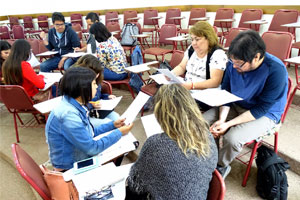 “The standards explain the skills, knowledge and dispositions that pedagogy graduates are expected to develop or acquire during initial teacher training, in order to ensure minimum performance in future professional practice. Teachers must develop knowledge for practice, in practice and from practice (...), the CPEIP explains that it aims to provide a more sophisticated view of initial teacher training and not so instructional, where the teacher in training develops the ability to propose different approaches to teaching and select the most appropriate one according to the context,” he emphasized.
“The standards explain the skills, knowledge and dispositions that pedagogy graduates are expected to develop or acquire during initial teacher training, in order to ensure minimum performance in future professional practice. Teachers must develop knowledge for practice, in practice and from practice (...), the CPEIP explains that it aims to provide a more sophisticated view of initial teacher training and not so instructional, where the teacher in training develops the ability to propose different approaches to teaching and select the most appropriate one according to the context,” he emphasized.